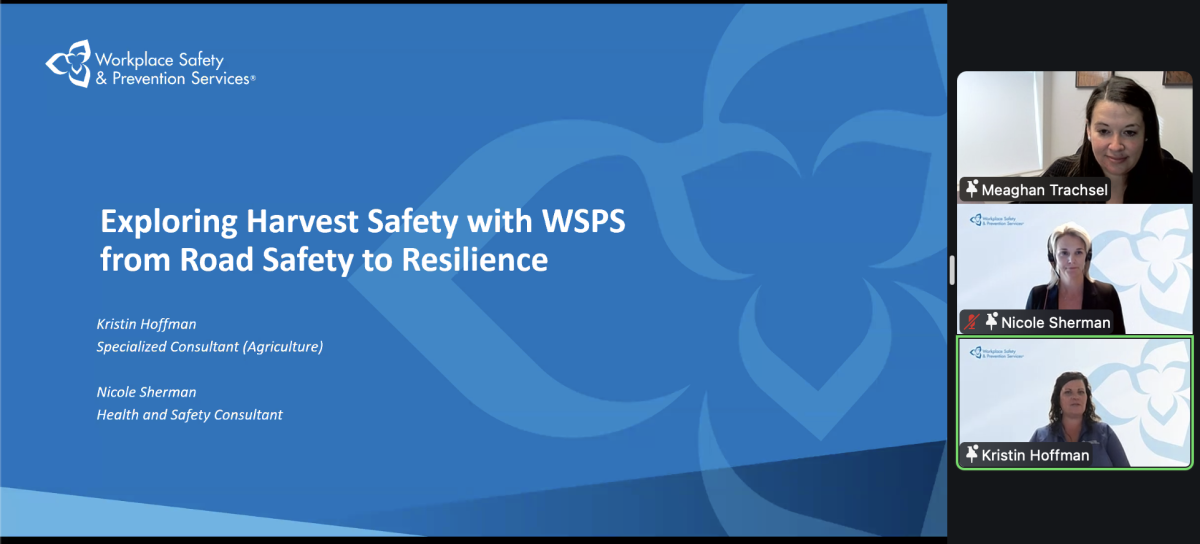Agriculture groups are lining up against plans by Canada’s Natural Sciences and Engineering Research Council (NSERC) to drop “food and agriculture” from its list of targeted areas for research funding.
NSERC “controls the agenda for university research funding so this is a real setback for Canadian farmers,” Grain Growers of Canada president Stephen Vandervalk said in a release this week from a coalition of ag groups dubbed Farmers for Investment in Agriculture.
“We need more of a competitive edge and that means more research — not less,” he said.
Read Also

Exploring Harvest Safety
Kristin Hoffman of WSPS explains measures for increased farm safety around harvest season
A statement released by NSERC, quoted in Thursday’s Manitoba Co-operator, acknowledges novel food and bioproducts have been discontinued as target areas for funding.
However, NSERC said, it continues to fund agriculture because the sector is represented under each of its four new strategic target areas.
Those areas include environmental science and technology, natural resources and energy, information and communication technology, and manufacturing.
“Food-related research, despite not being listed as a target area, continues to be a priority for NSERC funding,” the statement said.
“Canadian farmers are today producing more food with fewer resources than ever before. That’s a good news story because that’s what sustainability is all about,” Don Kenny, chair of the Grain Farmers of Ontario, said in the Farmers for Investment in Agriculture release.
“It is new research discoveries and new technology that have made this possible, but with increased world demand, we can only take it to the next level with more and better research.”
“At a time when most countries are making huge investments in farming to capitalize on our growing world food demand, Canada has decreased public research funding for agriculture by 40 per cent since 1994 and has lost over 10 per cent of our research scientists,” the coalition said.
“All out”
Karin Wittenberg, associate dean of research for the University of Manitoba’s faculty of agricultural and food sciences, said in the Co-operator that the loss of research funding could affect the U of M more than other Canadian universities because of its emphasis on food science.
While she wouldn’t comment directly on the reasons for NSERC’s decision, she said that “as I read it, anything that addresses global food security, that addresses food safety, that addresses a changing lifestyle for improved health… is all out.”
The U of M’s ag faculty alone received $3.2 million from NSERC over the last three years, including strategic grants and other sources of funding.
U of M food scientist Rick Holley, for one, got about $1.5 million from three strategic grants for food science research over the last 11 years. The last grant worth nearly $550,000 runs out at the end of this year.
“I’m not a happy camper here,” Holley said in the Co-operator, noting that if he’s unable to secure further NSERC funds for his field of work, “it’s going to personally affect me significantly.”
There are other NSERC programs that could continue to fund agricultural research, Wittenberg said, but noted they are usually small grants for “very basic stuff.”
















